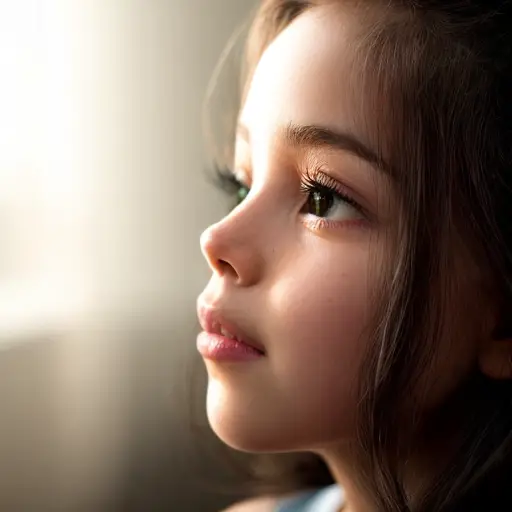The Impact of Covid-19 on Early Childhood Development
Well, well, well, look who decided to crash the party - none other than our uninvited guest, Covid-19, wreaking havoc on everything in its path, including our little munchkins' early childhood development. This pesky virus has turned our world upside down, and unfortunately, our tiny humans are not immune to its effects. With schools closed, playdates canceled, and social interactions limited to Zoom calls, our little ones are missing out on crucial opportunities for growth and development. From the lack of face-to-face interactions to the absence of hands-on learning experiences, this pandemic has thrown a wrench in the gears of their development. But fear not, parents and caregivers, for we shall adapt, innovate, and find creative ways to nurture our little ones' growth, even in the midst of this chaotic storm. After all, laughter is the best medicine, and a sprinkle of humor might just be the secret ingredient to help us navigate these uncharted waters.
Navigating the Challenges: How Covid-19 Disrupts Social and Emotional Development in Children
One interesting fact about how COVID-19 affects child development is that prolonged periods of social isolation and limited physical interactions can have a significant impact on their social and emotional well-being. Children thrive on social interactions, and the absence of regular face-to-face interactions with peers, teachers, and extended family members can lead to feelings of loneliness, anxiety, and even depression. This can potentially hinder their social skills development, emotional regulation, and overall mental health.
Well, well, well, it seems that Covid-19 is not content with just wreaking havoc on our physical health; it's also decided to take a jab at our little ones' social and emotional development. With social distancing measures in place and masks covering our smiles, our kids are facing a whole new set of challenges. Gone are the days of carefree playdates and spontaneous hugs with friends. Instead, they're left feeling isolated and disconnected from their peers. The lack of social interactions and limited opportunities for emotional expression can leave a lasting impact on their development. But fear not, parents and caregivers, for we are the masters of adaptation. We shall find creative ways to foster connections, whether it's through virtual playdates, heartfelt letters, or even silly dances on video calls. Together, we will navigate these choppy waters and ensure that our little ones emerge stronger and more resilient than ever before. After all, laughter and love are contagious, even in the face of a pandemic.
Learning in the Time of Covid: The Effects of Remote Education on Cognitive Development

In the midst of this chaotic storm called Covid-19, our little learners have been thrust into a whole new world of remote education. Gone are the days of bustling classrooms and interactive learning experiences. Instead, our kids find themselves glued to screens, navigating the virtual realm of education. While this shift has been necessary for their safety, it's important to acknowledge the impact it has on their cognitive development. The lack of face-to-face interactions with teachers and peers can hinder their ability to engage in meaningful discussions, ask questions, and receive immediate feedback. This can lead to a decrease in critical thinking skills and problem-solving abilities, as the dynamic nature of classroom learning is replaced by static online platforms.
Furthermore, the challenges of remote education extend beyond the limitations of virtual classrooms. Many children face difficulties in adapting to the self-paced nature of online learning, struggling to manage their time effectively and stay motivated without the structure and guidance provided by teachers. The absence of hands-on activities and experiential learning opportunities also hampers their ability to fully grasp complex concepts and develop practical skills. As a result, their cognitive development may be hindered, as they miss out on the multidimensional learning experiences that traditional classrooms offer.
However, amidst these challenges, there is room for innovation and adaptation. Teachers and parents have been working tirelessly to find creative ways to engage children in remote learning, incorporating interactive elements, virtual experiments, and collaborative projects. By leveraging technology and embracing new teaching methods, we can mitigate the negative effects of remote education on cognitive development. It is crucial that we continue to support our little learners, providing them with the resources, guidance, and encouragement they need to thrive in this new educational landscape.
In the end, while the impact of remote education on cognitive development is undeniable, it is important to remember that our children are resilient. They have the capacity to adapt and overcome these challenges, with the right support and opportunities. As we navigate this uncharted territory, let us not lose sight of the importance of fostering a love for learning, encouraging curiosity, and nurturing their cognitive growth, even in the time of Covid. After all, education is not confined to the walls of a classroom; it is a lifelong journey that can be embarked upon, no matter the circumstances.
Mitigating the Long-Term Effects: Strategies to Support Child Development during and after the Pandemic
Fun fact: Did you know that while COVID-19 has disrupted many aspects of daily life, it has also sparked some unexpected positive impacts on child development? With increased time spent at home, children have had more opportunities for unstructured play, which is crucial for their cognitive, emotional, and social development. This has led to enhanced creativity, problem-solving skills, and imaginative play among children, as they have had to find new ways to entertain themselves without relying on external sources. So, amidst the challenges, COVID-19 has inadvertently encouraged children to tap into their inner resources and fostered their independent thinking and resilience.
In the face of the long-term effects of Covid-19 on child development, it is crucial that we come together as a community to implement strategies that support our little ones during and after this pandemic. First and foremost, maintaining open lines of communication between parents, teachers, and caregivers is essential. By sharing concerns, insights, and resources, we can ensure that our children receive the support they need to thrive. Additionally, prioritizing mental health and emotional well-being is paramount. Encouraging regular exercise, mindfulness activities, and providing a safe space for children to express their emotions can help mitigate the negative impact of this crisis on their development. Finally, as we transition back to a semblance of normalcy, it is important to create opportunities for social reintegration. Organizing small group activities, fostering peer interactions, and promoting community engagement can help rebuild the social connections that were disrupted during this challenging time. By implementing these strategies, we can work towards mitigating the long-term effects of Covid-19 on child development and ensure a brighter future for our little ones.

